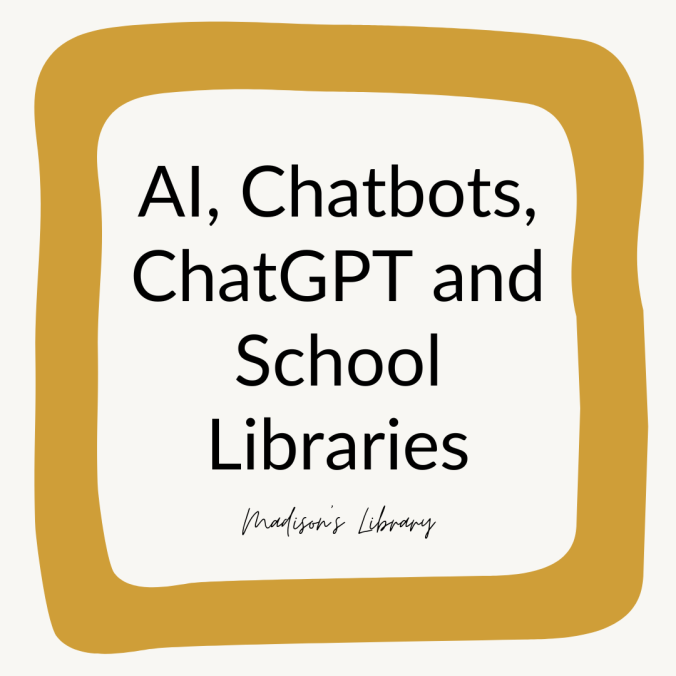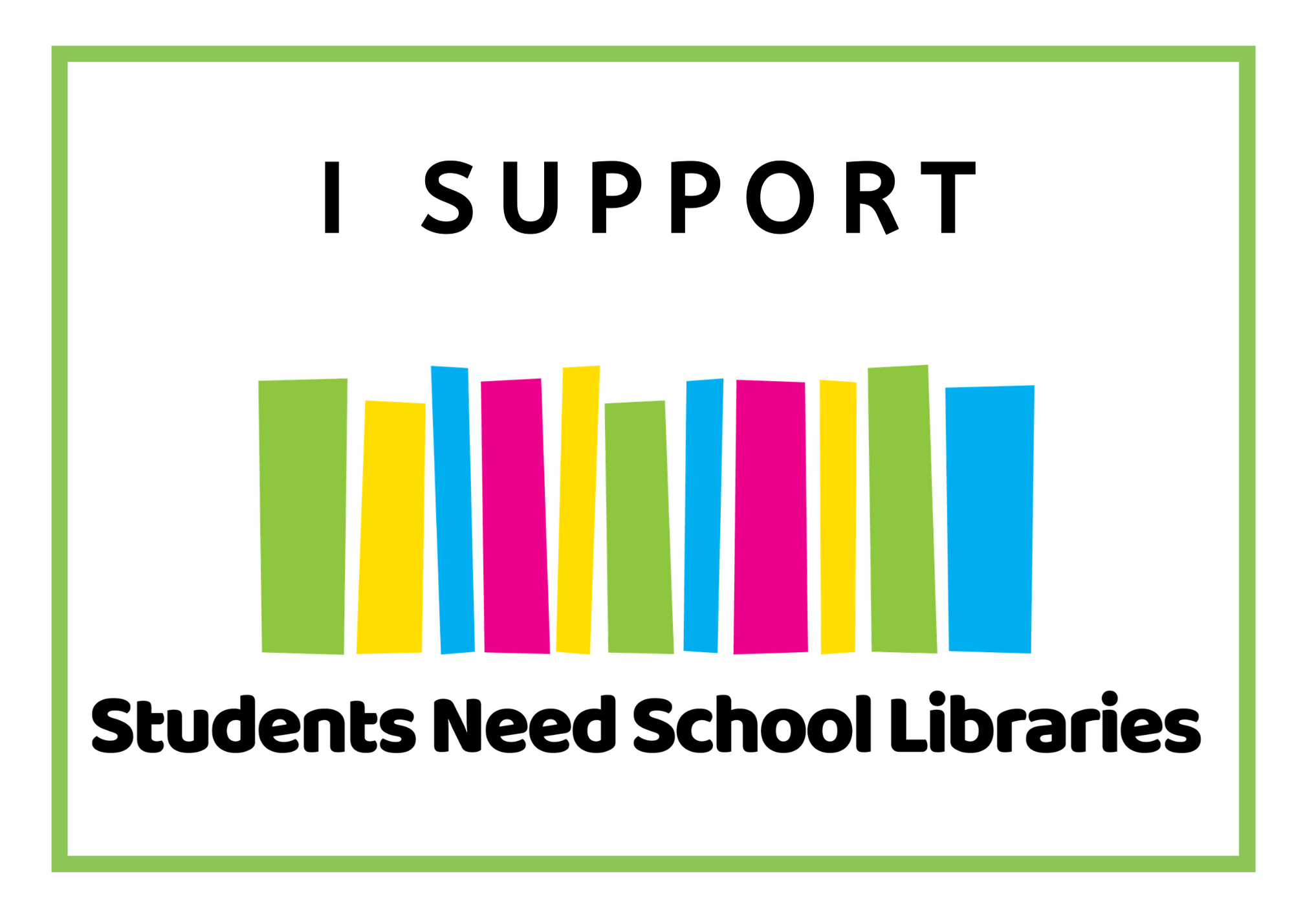Everyone’s Talking about AI, chatbots and ChatGPT. What does it mean for school libraries?
It’s everywhere on my socials and in my inbox at the moment – Artificial Intelligence and ChatGPD. We’ve been told for years that technology is changing and will have big impacts on the world, jobs and education. We’ve gone from fearing AI to encountering it on a daily basis (and possibly still fearing it). These past few weeks seemed to have reignited a focus on what AI and chatbots can do and how they are set to impact our lives. As a teacher librarian, I know I need to up-skill and learn about this area, as it is set to impact how student search, research, write, edit and submit their work. It will change how teachers prepare lessons, mark, how we check for plagiarism and how we teach students about AI.
If you, like me, need to read up in this area, I’ve collated a few of my favourite articles and courses that I’ve found in the past few days. Most come from a teacher or library perspective.
Sources
A free, online short course, AI, Chatbots and ChatGPT for Teachers, created by Dr Nick Jackson Director of Digital Technologies, that steps you through the very basics of ChatGPT and includes a perspective on education.
Fantastic comprehensive guide for teachers from Dr Torrey Trust, ChatGPT and Education.
Jackie Child, teacher librarian and digital technologies teacher, explores the topic on her website in Using ChatGPT
UK school librarian Elizabeth Hutchinson shares her thoughts in her post ChatGPT and School Libraries
Caitlin Tucker, professor of teaching, explores some of the key impacts ChatGPT will have and how we as educators need to adapt in her article How Disruptive will ChatGPT Be?
Ryan Watkins, professor of education technology, talks about key points to consider about ChatGPT, how to be reactive and update your syllabus and also how to be proactive and use ChatGPT in your classroom space – Updating Your Course Syllabus for ChatGPT
Our school uses TurnItIn to check for plagiarism and I was curious to see if this technology has adapted to pick up work created by ChatGPT. AI Writing: the Challenge and Opportunity in Front of Education Now
Want to check if something has been written by ChatGPT? Here are a few tips on how – How To Check for AI Content
Finally, two opinion pieces that encourage teachers to not react out of fear and ban tech such as ChatGPT, but to use and integrate it into classrooms, preparing students for a world in which this technology is very much a reality. Don’t Ban ChatGPT, Use It and Schools Must Embrace the Looming Disruption of ChatGPT
Sarah from Librarian in the Middle got me learning and thinking about ChatGPT in her most recent newsletter. While I can’t share the copy of her newsletter here, you can sign up to receive future emails here
Thoughts
Here are some of my initial thoughts after reading the above articles, guides and courses. No doubt, this will change as the technology changes.
- Instead of “Googling it” our students will probably learn to “ChatGPT it” when researching or planning their assignments. Just like we librarians adapted to teaching students how to get the most out of Google, I think we’ll need to do the same with chatbots.
- The tech is here to stay and students need to know how to leverage it to the best outcome for them and their learning.
- We need to look at updating our Assessment Policy to include wording around AI and chatbot technologies or as a school decide how this is going to be used.
- It’s vital to integrate AI more thoroughly into our classrooms and teaching. It’s a skill students need to know how to use and how to navigate safely. Chatbots and AI are tools and we need to teach students and staff how to use them wisely.
- There is lots of chat online about how ChatGPT can be used by teachers for everything from reporting to lesson writing, but I am wary of this and just like we need to teach students about using it wisely, we’ll need to talk to teachers about their use.
- We need to teach students about the limitations of chatbots
- ChatGPT provides information or text, but with little ability to make predictions, connection between visual materials, reflections, or include personal views.
- It makes stuff up. When not sure about something, the chatbot will make up or use false information rather than specify that which it doesn’t know.
- ChatGPT will reference when asked, but references are sometimes completely made up or irrelevant sources are used.
- The chatbot will provide answers that come from the data it has – if that data is biased or wrong, the answer it provides will also be biased or false.
- Age of data used is currently prior to 2021 with ChatGPT. This might change, but one has to consider the data it is using to make its points.
- It’s always learning – sometimes the wrong things. The chatbot is easily corrected and can be fed wrong information
- It’s collecting your data. Be wary of providing personal or sensitive information. By entering data (such as marking schemes), you are providing (or working for) this chatbot. It saves everything you have entered, even if you delete your account.
- Copyright – currently it is believed that the product created by ChatGPT sits in the public domain. This might change but it also needs to be considered if the work it draws its information from is not in the public domain.
- This technology is far from limited to chatbots and ChatGPT. Consider Canva’s Magic Write and text to image creator. There are lots of AI technologies out there that are changing the way we write and produce works. It’s an important conversation to have with your leadership and staff and important to stay on top of updates.
Have you used ChatGPT? How do you think it will change what you do as a school library professional?



Thank you for your summary, it gave a big picture that I needed to get my head around all of the basics of this.
Thank you. I’m glad it was helpful.